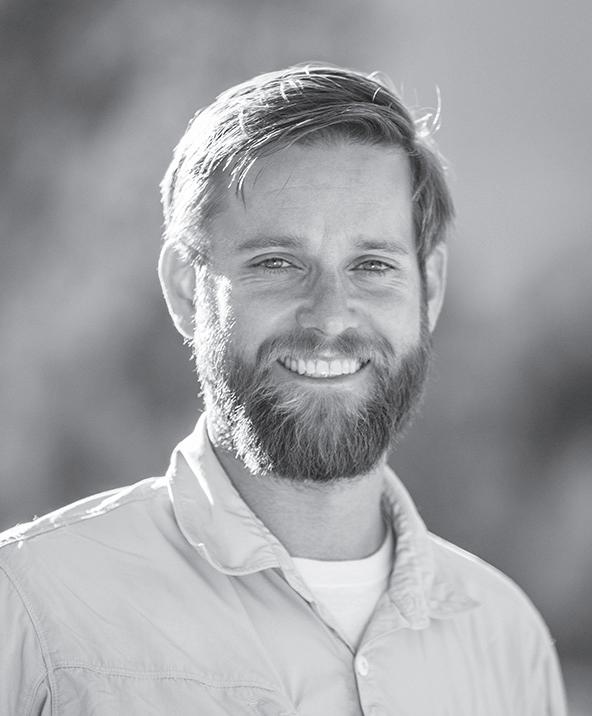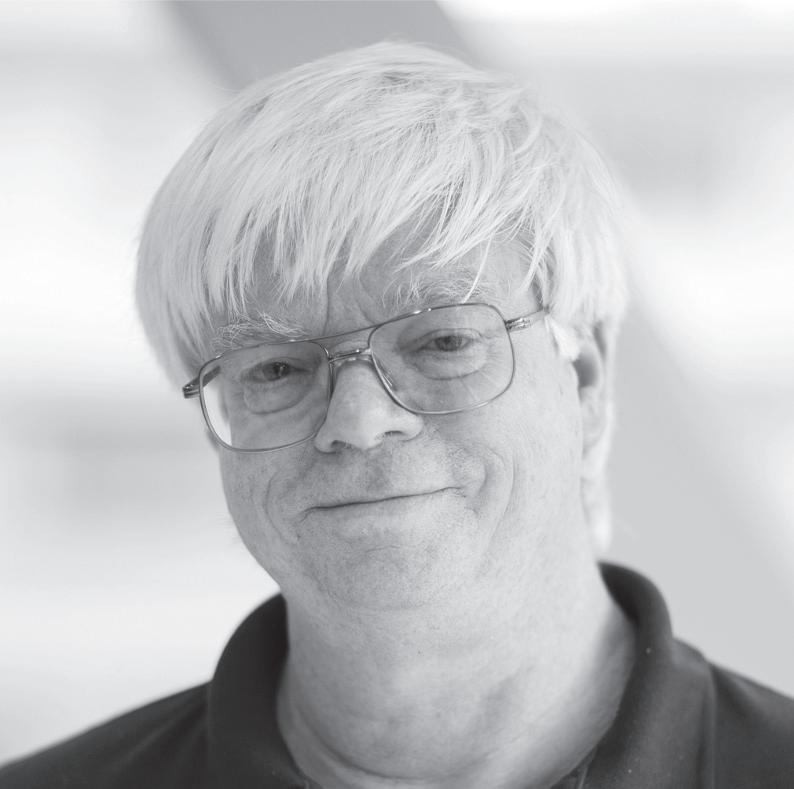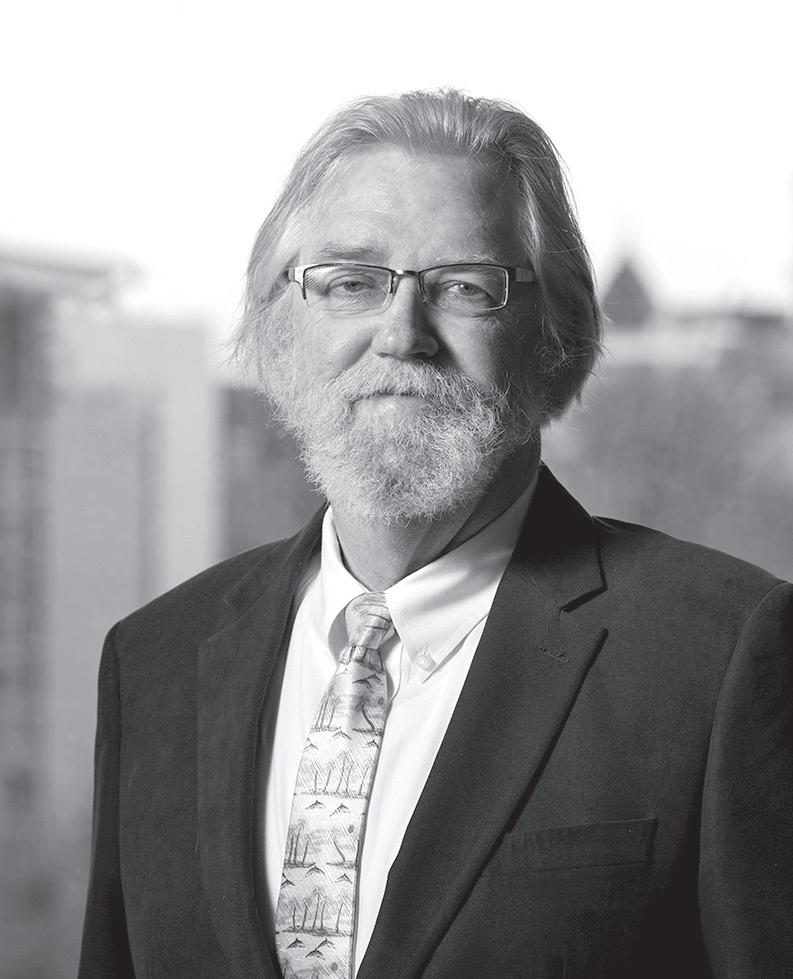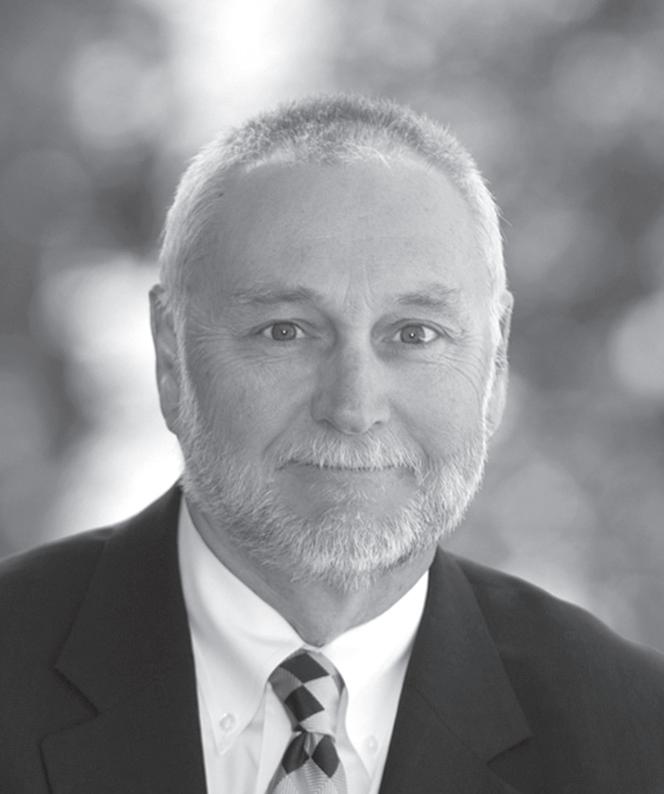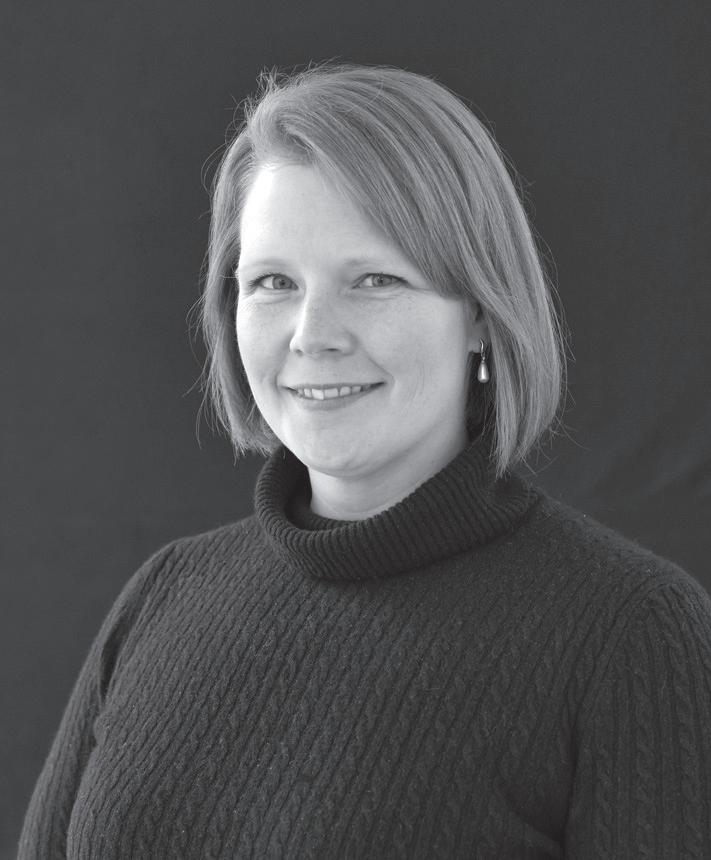
12 minute read
Teaching Excellence Awards
TEACHING EXCELLENCE AWARD SARA BAKKER
Caine College of the Arts
Sara Bakker is Assistant Professor of Music in the Caine College of the Arts. Her passion for teaching impacts everything she does at Utah State University, from formal classroom teaching to community teaching opportunities, to research, and service.
In her classroom teaching, Dr. Bakker makes music theory applicable to students at a variety of levels, from non-music majors with limited background in music to undergraduate and graduate music majors with divergent program needs. She emphasizes student-choice in repertoire and format throughout the curriculum, helping students integrate their written and aural music theory skills into their regular musical practice. She creates stylistic composition projects and prose writing assignments to develop critical thinking and analyzes a variety of musical styles, from Western tonal music to jazz and popular music to contemporary art music by living composers. She draws especially on music by women and composers of color, and engages students in social issues that are impacting the field of music, including access, representation, and climate change. To accommodate coronavirus safety, she developed a successful blend of synchronous and asynchronous learning in all of her classes, combining recorded mini-lectures, substantive group work, and synchronous, interactive lectures.
Outside of the classroom, Dr. Bakker models Public Music Theory for her students, offering informal learning opportunities for the broader Utah State University community. She has given preconcert lectures and written program notes for the Chamber Music Society of Logan, American Festival Chorus and Orchestra, and a variety of other concerts and events throughout the Music Department.
In her pedagogy research, Dr. Bakker focuses on practical ways the Scholarship of Teaching and Learning can impact the music theory classroom. She has published on how to use evaluation as a motivational tool, how to incorporate prose writing into the music theory curriculum, and how to create Bloom-inspired learning objectives for music theory. Currently, she is working on collaborative research with regional, national, and international scholars to make music theory teaching more effective based on findings about learning in cognitive science.
Finally, teaching also features prominently in Dr. Bakker’s service portfolio. She is director of the Caine Scholars for Excellence Program, a competitive scholarship for students in music, theatre, and art and design. She develops annual themes, organizes biweekly discussion meetings, and plans experiences and travel that expand the life-experience of future leaders in the arts. She is also the Department’s Honors Departmental Advisor in music, offering feedback on student-developed projects and helping them navigate ways to make the program meaningful to them. Additionally, Dr. Bakker serves on USU’s Empowering Teaching Excellence Faculty Committee, is a textbook reviewer for Oxford and Routledge, and an editor for the music pedagogy journal Engaging Students.
TEACHING EXCELLENCE AWARD JACKSON GRAHAM
College of Engineering
Jackson Graham is a Professional Practice Assistant Professor in USU’s Department of Mechanical & Aerospace Engineering. He graduated with bachelor’s and master’s degrees from the University of Florida in Gainesville and joined USU in the spring of 2015 as a lab engineer and instructor. He implemented sweeping changes to the department, developing new laboratory experiments that reinforce mechanical engineering concepts and improve the lab experience for students. In 2016 he began teaching the engineering graphics course and an upper-level course on special problems in engineering. Today, Jackson leads the senior capstone program, a two-semester experiential learning course in which students develop solutions for real-world engineering problems.
Prior to joining USU, Jackson served in the United States Army from 2004 to 2008. He attended the Army’s Ordinance Center and Schools at the Aberdeen Proving Ground in Maryland, which is recognized as one of the nation’s most important research and development, testing, and evaluation facilities for military equipment. He was trained as a wheeled vehicle mechanic and received an additional skill identifier for electrical systems repair. He later served tours in Europe and the Middle East as a vehicle mechanic. He has also worked for the U.S. Forest Service as a trail crew technician, building trails in the Teton Wilderness Area using only hand tools and explosives.
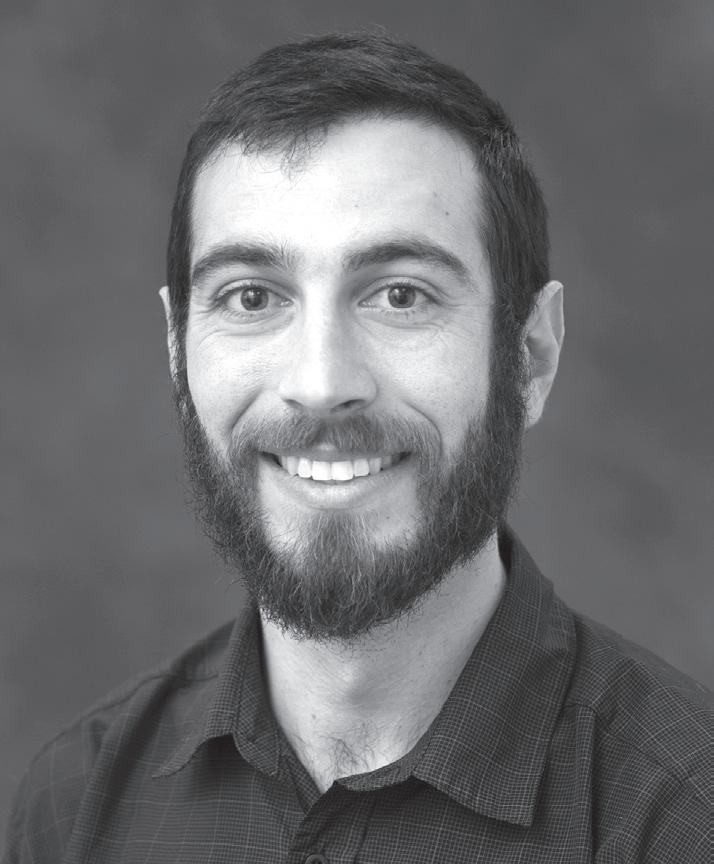
Jackson is also a skilled designer. For his master’s degree, he designed and manufactured a prototype of an emergency braking device for tractor trailers. He also designed an autonomous watercraft that has a novel rim-driven propulsion system. The vessel design earned him an innovation award at the 2014 Association for Unmanned Vehicle Systems International, or AUVSI, RoboBoat Competition for outstanding hull form and propulsion system design.
TEACHING EXCELLENCE AWARD JEANNIE L. JOHNSON
College of Humanities and Social Science
Jeannie L. Johnson is the Director of the groundbreaking Center for Anticipatory Intelligence (CAI) on USU’s campus. First in the nation, the Anticipatory Intelligence program she and her teaching team launched three years ago fuses STEM and social science expertise to tackle complex security concerns resulting from converging trends in emergent tech, bioengineering, data science, and a changing climate. Students involved in the program are immersed in a truly interdisciplinary environment—CAI’s 90 students hail from over 35 different majors—and combine their diverse expertise and wide range of cognitive skills to create powerful problem- solving teams.
Dr. Johnson’s courses have a reputation for being some of the most rigorous on campus. Students in her classes report both one of the most difficult semesters of their career and one of the most transformative. She and her teaching team deliver experiential learning infused with real-world simulations, relentless training in research and writing, and complex strategic thinking. Students develop a wide range of analytical tools to anticipate threats and design strategies of resilience. This combination of skills prepares CAI graduates for leadership within the US national security community and for placement in key roles across the private sector.
Dr. Johnson worked within the Central Intelligence Agency’s Directorate of Intelligence from 1998-1999 and served with the US State Department in Embassies in Paris and Zagreb. She and CAI co-founder Matt Berrett designed the Cultural Topography Framework—a cultural analysis tool which remains the analytic method of choice across the US intelligence community. Dr. Johnson is an active consultant for the US intelligence community and advises intelligence and military communities in Britain and Canada. She participates in a variety of roles for the US State Department and military services in order to improve understanding of the cultural contexts in which we operate abroad.
Dr. Johnson received her doctorate in strategic studies from the University of Reading in 2013.
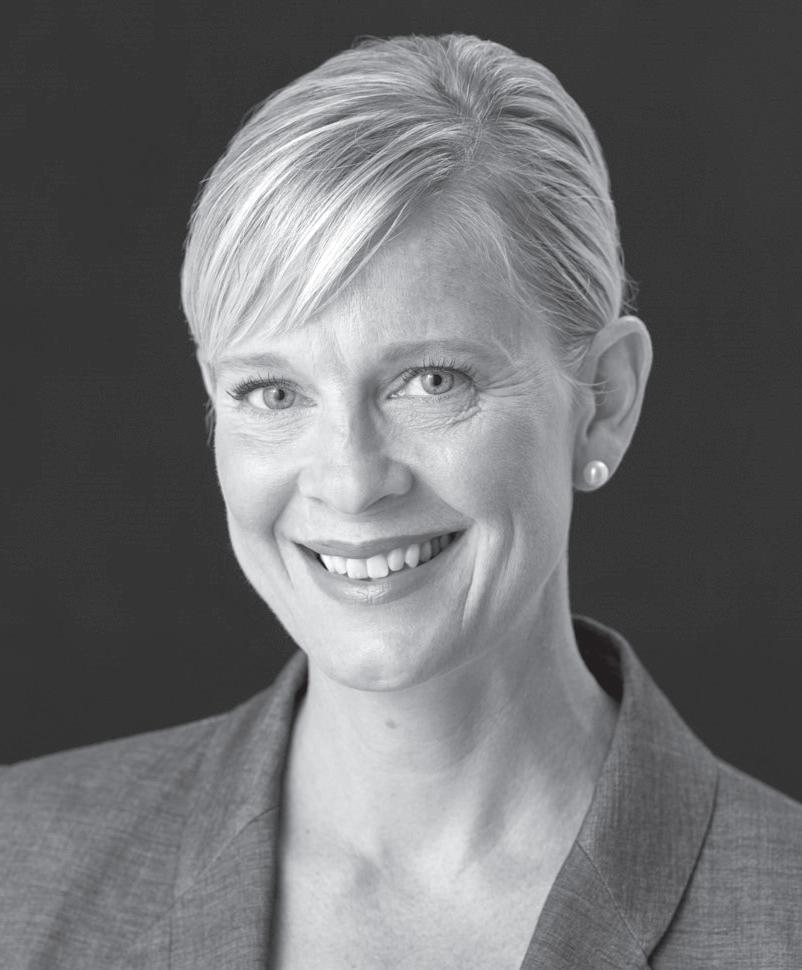
TEACHING EXCELLENCE AWARD MICHAEL CHRISTIANSEN
College of Science
When students and alumni describe Mike Christiansen, associate professor of organic chemistry and chemistry education, they recount his patience and methodical skill in explaining complex concepts in engaging lectures. Teaching through in-person, IVC broadcast and online formats, Christiansen makes use of varied technologies to provide students with ready access to a vast library of learning materials. He has created nearly 750 online YouTube chemistry tutorials, which have garnered more than five million views. In addition, Christiansen is a prolific writer and actively publishes in the area of chemistry teaching. He recently published the online textbook, Organic Chemistry Unleashed, which covers concepts in both written and video form and has a question-and-answer bank with more than 1,200 answer videos. Christiansen leads the department in publishing papers in teaching pedagogy, with 13-peer reviewed papers and book chapters in chemical education. Beyond the classroom, Christiansen mentors aspiring researchers, and many of his students have earned awards, including the university’s undergraduate research grants and “College of Science Undergraduate Researcher of the Year.” More than a few alumni, who are now professionals in health care, research and education, confess they often return to Christiansen’s lectures to refresh and hone their chemistry skills. They also credit Christiansen with encouraging them not to give up on ambitious academic and career plans. Many say they now hold the title “Doctor,” because Christiansen instilled them with the knowledge, along with confidence, to purse their dreams.

TEACHING EXCELLENCE AWARD KIMBERLY H. LOTT
Creating Learners of Science: Dr. Kimberly H. Lott: Teacher of the Year
Honored as the Emma Eccles Jones College of Education and Human Services Teacher of the Year, Dr. Kimberly Lott believes in the power and impact of engaging science learning experiences. In both her career as a secondary science teacher and her role as an undergraduate instructor, she understands the value in students developing a deeper understanding of science and science teaching through their own engagement.
Dr. Lott taught secondary school science for six years before getting her doctorate in 2002. She joined the faculty at Utah State University in 2007, where she taught science teaching methods courses for both undergraduate and graduate students and was promoted to Associate Professor of Science Education in 2014. Her teaching philosophy is firmly rooted in a constructivist inquiry approach in which students actively build their own knowledge through exploration and discussions. By experiencing the process of scientific discovery themselves, future teachers have a greater depth of knowledge to draw from to help their students make the same connections.
“I feel the biggest reward when students come to me after completing my course to tell me how much they learned and that now science is their favorite subject to teach,” Lott said. Her students are given ample opportunities to try new methodologies in real classrooms, giving them the confidence to teach science in their own classrooms later. “Dr. Lott has a great passion for education and preparing teachers to enter the classroom,” said Nicole Nielsen Brooksby, undergraduate student. “Through her experience-based learning approach in the college classroom, we had the opportunity to learn scientific concepts hands on. This approach left me and many of my peers with a knowledge and passion for teaching science.”
Dr. Lott currently serves as coordinator and initial advisor for all of the School of Teacher Education and Leadership’s master’s programs and students, and she also advises multiple students in the science doctoral program. In addition to her work at USU, Dr. Lott uses her expertise to support teachers throughout the state of Utah. Her recent grant from the Utah State Board of Education is focused on training teachers to integrate science and literacy skills. She is a frequent contributor to Science and Children, the world’s leading elementary science teacher practitioner journal.
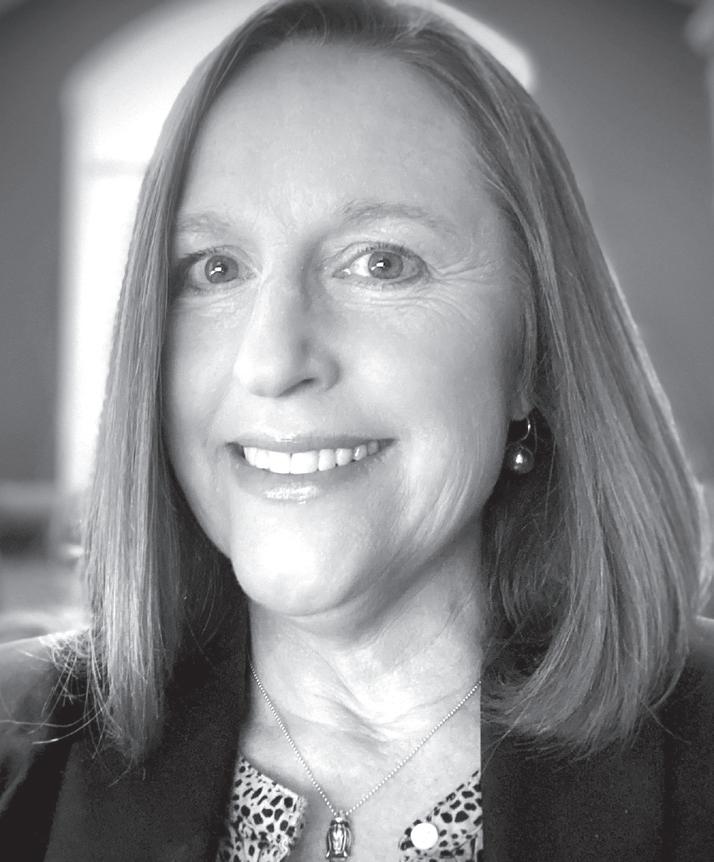
TEACHING EXCELLENCE AWARD BRET D. CRANE
Jon M. Huntsman School of Business
Dr. Bret Crane, Assistant Professor of Leadership at the Jon M. Huntsman School of Business and Associate Director of the Stephen R. Covey Leadership Center at Utah State University
Active learning is transformative. Guided by this philosophy, Assistant Professor of Leadership Bret Crane at Utah State University’s Jon M. Huntsman School of Business emboldens students to become leaders that act with courage to make a difference in the world. Coming from a business background, Dr. Crane engages students in practical, real-time leadership experience, both in the classroom and in the community. As a teacher and as Associate Director of the Stephen R. Covey Leadership Center at Utah State University, Dr. Crane has developed a number of leadership programs and opportunities since joining USU’s faculty in 2015. Nearly 1,500 students have participated in these programs, which include Strength-based Coaching (students receive one-on-one training to learn how to lead by leveraging their individual strengths), the 7 Habits Journey (a cohort-based learning model that helps students set goals for personal improvement), the Leadership Challenge for Elementary Schools (USU students go into local schools to teach and train the next generation of principled leaders), the International Leadership Experience (students develop and practice leadership in a group setting and present solutions to companies in the United Kingdom), the Executive Challenge (a virtual leadership case competition, which will include international participants this year), and Leadership Week (daily activities, leadership - based service opportunities, and forums featuring executives from leading global businesses and organizations). In the words of his students, Dr. Crane “connects with each student in his class,” and is known for learning all their names. He is among his students’ “most trusted academic mentors” and “he also does more than just teach leadership principles; he also lives them.” Dr. Crane has published over 8 articles across a variety of journals including Journal of Business Ethics, Journal of World Business, Business & Society, and Human Resource Development Review. Dr. Crane was previously a Visiting Professor at the George Washington School of Business in Washington, DC. Prior to entering academia, he worked in the technology and real estate industries. He has a Ph.D. in Business Administration from the Darden School of Business at the University of Virginia and an MBA and a BA from Brigham Young University.
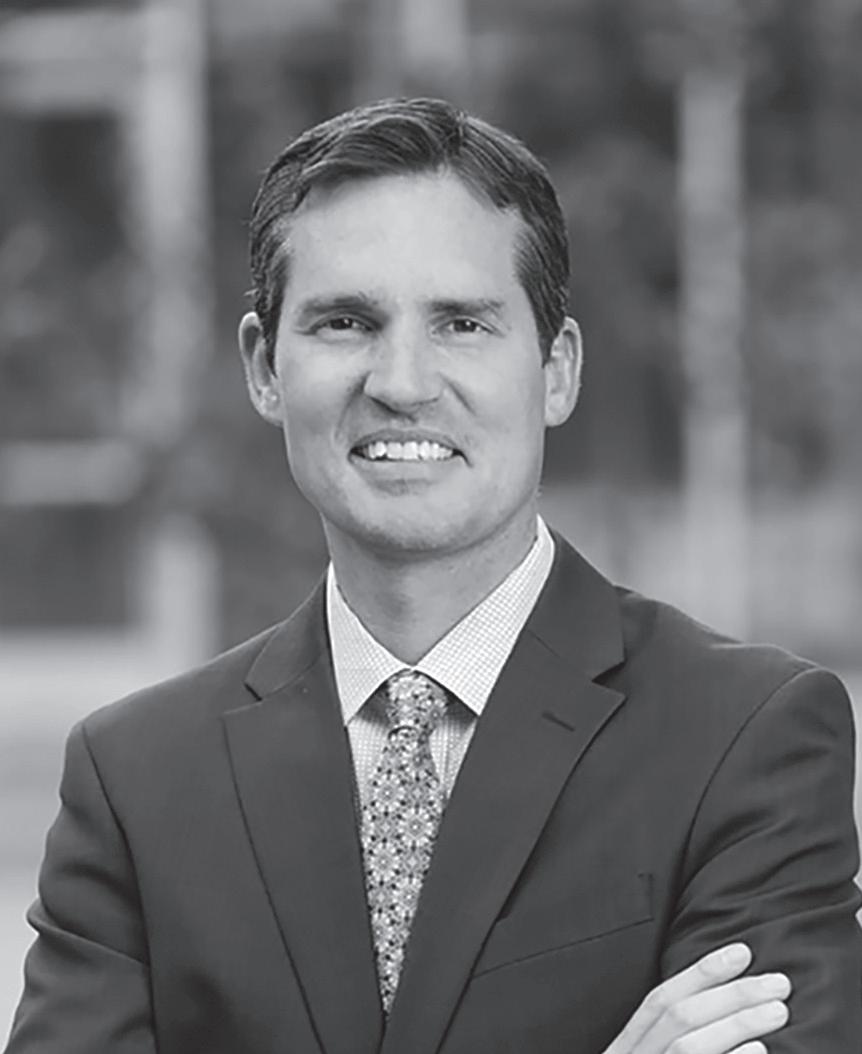
TEACHING EXCELLENCE AWARD MARK CHYNOWETH
S.J. & Jessie E. Quinney College of Natural Resources
Mark Chynoweth is an Assistant Professor in the Department of Wildland Resources in the Quinney College of Natural Resources. He joined QCNR in August of 2017 and has quickly become a teaching, mentoring force in the college. Located in the Uintah Basin, Mark teaches a full load while mentoring and building partnerships. He teaches six core courses across three different formats: face-to-face, broadcast, and online. His teaching abilities and talents have not been slowed down by the pandemic. Along with a heavy teaching load, he has also developed nine courses since joining QNCR that cover a wide breadth of topics. He excels at the challenges of delivering a great learning experience in different formats and topics.
After spending three years on Catalina Island working as a marine science instructor, teaching students in marine ecology, Mark completed his masters at the University of Hawaii at Manoa and, in 2017, his Ph.D. at the University of Utah, where he worked to increase protected areas for large carnivores. Never slowing down in his momentum, he has taken to his role in QCNR with enthusiasm and hard work. He has spent the last seven years conducting fieldwork in northeastern Turkey focused on brown bears, gray wolves, and Eurasian lynx; he is involved with the Wildlife Society and was recently elected to the executive board of their College and University Education Working Group; and he is engaged in building internship opportunities for the students in the Uinta Basin Mentoring Program.
Mark lives in Vernal, Utah with his wife, two dogs, and six chickens. In his free time, Mark enjoys human-powered exploration of the outdoors. He especially enjoys mountain biking (McCoy Flats), backcountry skiing (Ashley National Forest), and sailing (Flaming Gorge Reservoir). He is attempting to become a novice beekeeper on their historic Uintah County property.
